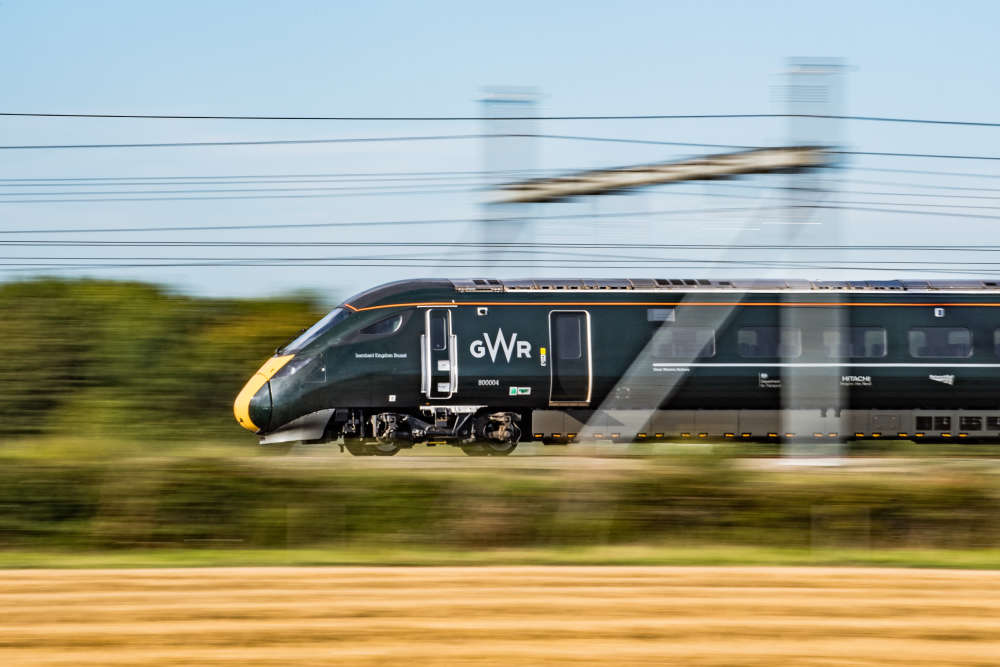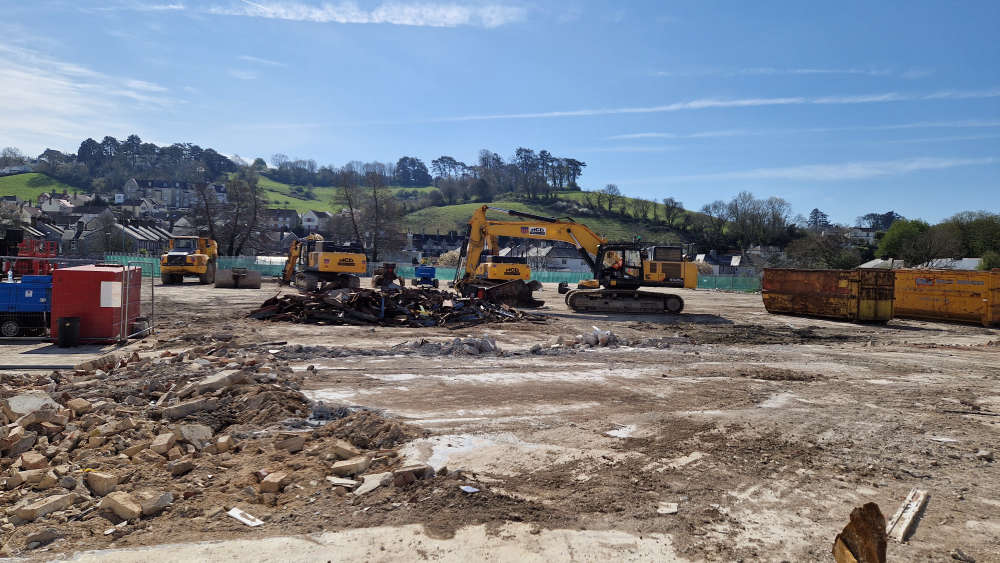
Old Oak Common HS2 project will hit Devon services
Devon faces a decade of disruption to train services as a London railway station is transformed into a ‘new transport superhub’.
When finished, Old Oak Common station just west of Paddington will have 14 platforms to serve up to 250,000 passengers every day as part of the nationwide HS2 project.
But Devon MPs fear that work to build the station will cause major problems for travellers to and from the county. Some services will go to Euston instead of Paddington, adding time to journeys.
Services over Christmas will be affected by the works, and passengers going to and from London are being advised to check the timetables.
Speaking at prime minister’s questions this week, David Reed (Conservative, Exmouth and Exeter East) said passengers across the south west face years of disruption. Prime minister Sir Keir Starmer said the government had earmarked £30 million towards mitigating problems.
In a separate Westminster debate on Devon’s rail network, Rachel Gilmour (Lib Dem, Tiverton and Minehead) called for rail fares to be cut to encourage people to travel during the Old Oak Common project, and for more investment in Devon’s rail and road infrastructure during the disruption.
Steve Darling (Lib Dem, Torbay) said the work in West London is a "new threat and challenge" to the county
He said: “The fact that the section of HS2 between Old Oak Common and Euston will cost £6.5 billion is astounding. The mitigation of £30 million that I understand may well be on the table for the impact of Old Oak Common on the south west is a drop in the ocean, compared with the overall costs of the whole HS2 project.”
And he said the cost of completing the final part of the vital ‘resilience’ scheme on the vulnerable railway line at Teignmouth and Dawlish is "small change" compared to the cost of HS2.
MPs from around Devon took part in the debate on the county’s railways, and Steve Race (Labour, Exeter) told them: “We face challenges that will hold back our economy if we do not address them. One of the major challenges is the regularity and the resilience of our public transport system.”
Exeter, he said, is the fourth-fastest-growing city in the UK and the biggest economy west of Bristol. Around 35,000 people commute into the city every day, and passenger numbers are increasing.
Investment in the rail network would take traffic off the roads and cut carbon emissions, he said.
Mr Race highlighted the need to complete work to protect the vulnerable sea wall line between Dawlish and Teignmouth, a project that is still awaiting funding confirmation.
And, he said, restoring the Exeter to Plymouth line north of Dartmoor via Okehampton and Tavistock is a viable alternative. He also said passing loops on the single track line between Exeter and Salisbury would help avoid long delays.
Ian Roome (Lib Dem, North Devon) said trains on the Tarka line from Barnstaple were currently over-capacity, with large numbers of college students traveling to and from Exeter. Extra carriages are needed, but station platforms are too short.
He added: “Something as basic as lengthening a platform is likely to leave passengers in Devon feeling hard done by, given the significant rail investment elsewhere in the country?”
Mr Darling also highlighted the importance of the planned new Edginswell station at Torquay.
“It supports a business park and regeneration in one of the most deprived parts of the south west peninsula, which is sadly my constituency; and it helps our NHS,” he said.
“We need to see investment in our health services, particularly Torbay Hospital, including to ensure that there is sufficient accommodation for NHS employees. Part of that is about regenerating Paignton town centre, so that those people can stay in Paignton, jump on a train and be dropped off at Edginswell, almost on the doorstep of a renewed Torbay Hospital. That is joined-up government.”
Richard Foord (Lib Dem, Honiton and Sidmouth) highlighted the importance of new stations planned for Cullompton and Wellington. He said: “With so much new housing proposed at Cullompton, it is desperately important that there is a railway station to go with it and that we do not simply see housing without infrastructure.”
Simon Lightwood, parliamentary under-secretary for transport, said the government recognises the importance of rail services in Devon and wants to see further improvements.
But, he said, not all proposed rail projects for the county could be delivered.
He said: “Ministers have been clear that in the context of the financial situation that the government inherited, it will not be possible to afford the delivery of all proposed projects.”
He said a thorough review of the previous government’s transport plans was under way.
Old Oak Common station, he said, is crucial for growth, but would inevitably have an impact.
“The government will continue working with industry partners to ensure that disruption for passengers using the Great Western main line is kept to a minimum, both during construction and once services are in operation,” he added.
 SWW to build huge new Churston solar farm
SWW to build huge new Churston solar farm
 MP highlights Devon's dentistry 'crisis'
MP highlights Devon's dentistry 'crisis'
 Work on ‘once-in-a-generation’ Newton Abbot project back on track
Work on ‘once-in-a-generation’ Newton Abbot project back on track
 Complaints made after animal activity licence backlog
Complaints made after animal activity licence backlog
 City draw at home
City draw at home
